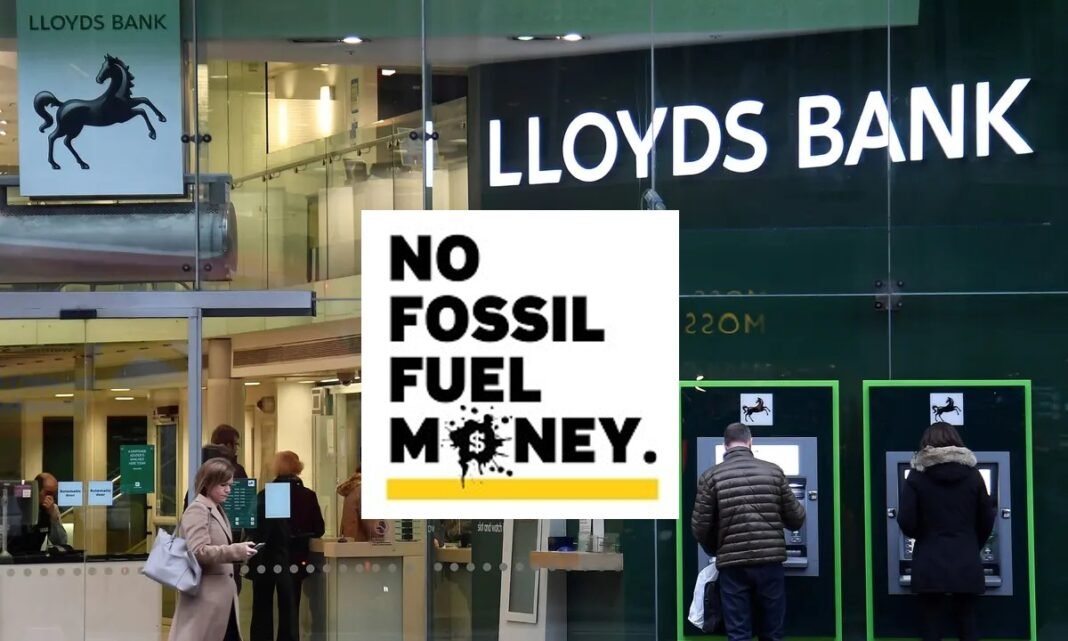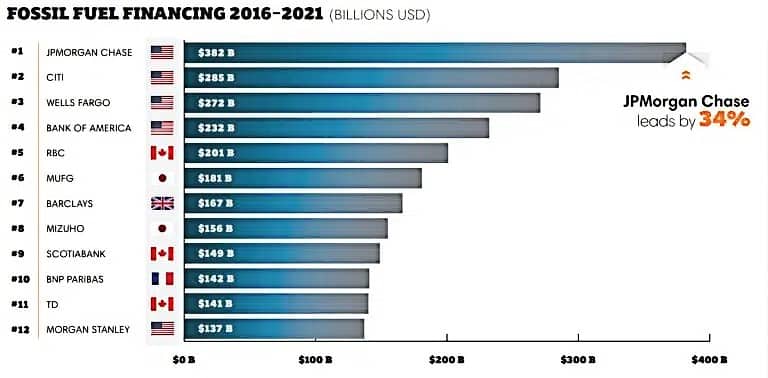Britain’s largest domestic bank Lloyds Bank will no longer provide direct financing to fossil fuel projects as part of its new climate policy.
The finance giant announced that will not fund any new gas, oil, and coal projects to support the UK’s transition to a sustainable, low-carbon economy.
Doing so allows Britain’s biggest domestic bank to join a small group of lenders pushing back on funding the expansion of the fossil fuel industry.
Lloyds Bank’s New Climate Policy
Hailed as “radical reinvention” Lloyds Bank’s new climate policy will still provide general lending to firms in the sector but bars project financing or reserved-based lending to fossil fuel projects.
A statement from the policy said that:
“Addressing the potential impacts of climate change, how our customers are engaging with the opportunities and challenges created by climate change and the need to transition to a low carbon economy plays a key role in our risk management approach to sustainability.
The British bank also added that it encourages customers to minimize dependence on carbon-intensive sources of revenue to hasten the shift to a low-carbon economy. It further stated that it will stop working with clients who don’t meet their new climate requirements.
Environmental groups welcomed the lender’s move while calling other British banks to do the same.
For Tony Burdon, the CEO of Make My Money Matter:
“Lloyds’ new policy marks an important turning point in the dangerous relationship that exists between leading UK banks and fossil fuel companies.
The bank is the first of the five largest lenders in the UK to halt direct financing of new fossil fuel projects.
This move comes just weeks following the UK’s pledge to give a go for new exploration in the North Sea over concerns about energy security. The British government announced dozens of new oil and gas licenses in the region to boost domestic production.
Banks and other financial institutions are under growing pressure to end support to companies that worsen the climate crisis.
The Trend to End Fossil Fuel Financing
Fossil fuel financing from the world’s biggest lenders has totaled $4.6 trillion in the 6 years since the Paris Agreement was signed in 2015.
- $742 billion of that went to fossil fuel financing for the year 2021 alone, according to estimates.
Lloyds had invested around 1 billion pounds ($1.1 billion) in its commercial oil and gas clients in 2021 as per its climate report. That figure accounted for a very small fraction of its overall lending – only 0.2%.
The bank’s exposure to the dirty industry is relatively small compared to its global competitors. That’s because it’s focusing on domestic lending only.
But its decision reflects the increasing trend in pressuring banks to help speed up the transition to a low-carbon economy as the next round of COP climate conferences happens in Egypt next month.
While other banks are tightening their climate lending policies in line with the Paris Agreement, most of the large lenders in the U.S., however, continue to back expansion in the sector.
Earlier this year, three major American banks – Citigroup, Wells Fargo, and Bank of America – rejected shareholders’ proposals to align lending practices with climate targets.
The chart below shows major banks favoring fossil fuel financing from 2016 to 2021. JP Morgan topped the list.
But Lloyds Bank promises to take the climate into account in their credit assessment process. It said it dedicated sustainability training to staff to fulfill its climate pledge.


